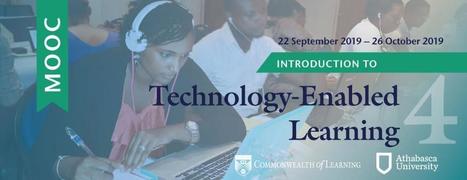 Your new post is loading...
 Your new post is loading...
As most universities digitise all their teaching, they are finding it very difficult to deliver education online. Gorgi Krlev offers three challenges to conventional wisdom
Read an interview with edX learning experience designer Ben Piscopo to learn more about the field of instructional design, the value learning designers bring to online learning, and insights for effectively building and scaling your own learning programs.
|
This thesis investigates the low levels of student engagement after registering to study for a massive open online course. To do this, it adopts a mixed methods approach (Gray, 2013) by analysing two large-scale surveys (120,842 and 1,800 responses respectively) and interviewing 12 learners. This was possible because access was given to 76 presentations of 19 MOOCs produced by The Open University on the FutureLearn platform. The aim of this thesis was to answer two research questions. Why do learners engage in massive open online courses (MOOCs), and what elements of the design of MOOCS encourage learner engagement?
The analysis of 120,842 survey responses illustrated that learners across all the MOOCs investigated in this study were very focussed on personal interest, regardless of subject. Courses with subject material which focussed upon the future use of technology and educational technology were embarked upon for professional purposes secondary to personal interest. Learners interviewed who had not completed the MOOCs did not see themselves as disengaged but as having achieved their study goals.
Learning designs of 19 MOOCs with learner activity and dashboard data from 800,038 enrolments and 425,792 learners were analysed with respect to the second research question. The activity data from 425,792 learners demonstrated they were more likely to engage with comments and to like comments on steps such as articles and videos than on discussion steps. Findings from the performance dashboard data (for example enrolment numbers) and learner activity data, coupled with learning designs, were analysed. From this, high-engagement steps (‘Super Steps’) were identified and isolated for analysis. This study discovered that learners preferred to engage with steps that the learning design framework classified as communicative or assimilative. Learners were more likely to engage with steps that posed questions within their titles, a previously unconsidered element within learning design.
Teachers who want to learn more about teaching with technology will find this Massive Open Online Course (MOOC), Introduction to Technology-Enabled Learning (TEL), informative and engaging. Using up-to-date learning design and simple, accessible technology, the course runs on an easy-to-use learning platform available via the Internet. The course is designed for teachers who want to build on their knowledge and practice in teaching and learning with technology. It will run over five weeks and requires approximately three to five hours of time each week. Designed to accommodate teachers’ busy schedules, the course offers flexibility with options for learning the content. You will learn from readings, videos, discussions with other participants and instructors, meaningful exercises, quizzes and short assignments. Certification is available for those who wish to complete all required exercises and quizzes.
|
 Your new post is loading...
Your new post is loading...
 Your new post is loading...
Your new post is loading...













